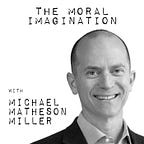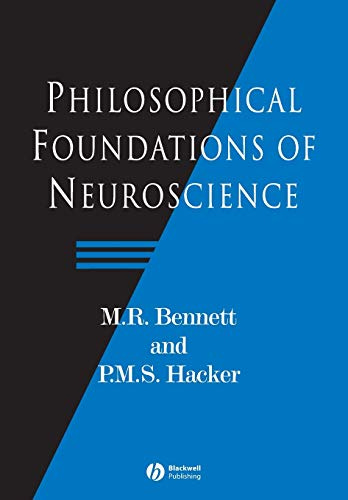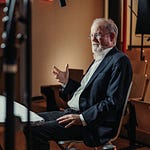Does your brain think? Does your frontal lobe decide? Or do you think and you decide? What is the relationship between the brain and and the mind; between the brain and the person? Neuroscience has entered our everyday speech and increasingly shapes the way we think about ourselves and the world--including some serious conceptual errors. In this episode, I speak with Dr. Michael Egnor, a neurosurgeon and professor of pediatric neurosurgery about some of the philosophical foundations and faulty assumptions of contemporary neuroscience. We discuss his critiques of materialism, positivism, and scientism that underlie much of neuroscience. We also discuss the work of Bennet and Hacker and the pervasive error in neuroscience of the mereological fallacy--the error of identifying the part with the whole--identifying the brain with the person. Bennet and Hacker argue that much contemporary neuroscience is founded upon a "mutant Cartesianism" that has replaced the dualism of Decartes with a new dualism where the brain takes the place of the mind. We also discuss Dr. Egnor’s work on split-brain patients, perception, and the Aristotelian-Thomistic idea of hylomorphism. This is my first interview with Dr. Egnor. In the second interview, we discuss the problem of free will, the work of Benjamin Libet, Sam Harris, and what neuroscience actually tells us about free choices.
Topics we discuss include:
Mereological Fallacy: Attributing whole to part.
I highly recommend the work of Bennett and Hacker on the Philosophical Foundations of Neuroscience and The History of Cognitive Neuroscience. See links below
The binding problem.
Engor argues that the binding problem is not a scientific problem
“The question you ask is more important than the answer you get”. Pollack
Pre-conceived materialism vs physical explanation
Aristotle’s 4 causes:
Material
Formal
Efficient
Final
Warner Heisenberg —Uncertainty Principle
Egnor on Heisenberg: “What we observe is not nature itself, but nature exposed to our method of questioning.”
Materialism is not neutral
Scientism
Positivism
David Mamet: Mamet principle— Pretending not to know things
Girard on mimetic desire
Exclusion of questions
Marx
Voegelin
Augusto del Noce
Dictatorship of relativism homily
Hannah Arendt. Banality of evil
Rule of law vs Totalitarianism law is means to power
And arbitrary
Terror and unpredictability
Thomas on law
Bennet and Hacker
Mereologial fallacy
Degenerate Cartesianism QUOTE
Mutant form of Cartesianism
Sherrington and Penfield
Mind to brain
Descartes
Res extensa
Res cogitans
Animals no mind. Meat robot
Joseph LeDoux: Critique of limbic theory
Aristotle on intellect and will and material powers
Aristotle Perception vs intellect and will
Max Scheler animals choosing decisions
Roger Scruton on loving animals
Phrenology Definition. Critique
Maps of brain
Split Brain Patients
Treatment of Epilepsy: Cutting corpus collusum which severs the two hemispheres of the brain
Michael Gazzaniga—student of Roger Sperry
Gazzaniga and LeDoux: The Integrated Brain
Joseph LeDoux: study on amygdala, fear, and self
Anxiety
The Emotional Brain
For critique of Gazzaniga and LeDoux see Bennet and Hacker: History of Cognitive Neuroscience
Biography
Michael Egnor, M.D. is a Professor of Neurological Surgery and Pediatrics and Director of Pediatric Neurosurgery at Stony Brook University’s School of Medicine. His surgery practice includes patients diagnosed with Arnold Chiari deformity, hydrocephalus, cranio-synostosis, brain tumors, and spina bifida, as well as children with severe head trauma. He has an international reputation for research on hydrocephalus, and he is on the Scientific Advisory Board of the Hydrocephalus Association in the United States. He did his medical degree at Columbia University College of Physicians and Surgeons, and his residency at Jackson Memorial Hospital, Neurological Surgery.
Does your brain think? Does your frontal lobe decide? Or do you think and you decide? What is the relationship between the brain and and the mind; between the brain and the person? Neuroscience has entered our everyday speech and increasingly shapes the way we think about ourselves and the world--including some serious conceptual errors.
BIOGRAPHY
Dr. Michael Egnor is the Director of Neurosurgery Residency Program; Professor of Neurosurgery and PediatricsDepartment of NeurosurgeryRenaissance School of Medicine at Stoney Brook University. He has expertise in neurosurgery, head trauma, brain cancer, hydrocephalus, Spina Bifida, Spinal Tumors
Michael Egnor’s practice includes patients diagnosed with Arnold Chiari deformity, hydrocephalus, cranio-synostosis, brain tumors, and spina bifida, as well as children with severe head trauma. He has an international reputation for research on hydrocephalus, and he is on the Scientific Advisory Board of the Hydrocephalus Association in the United States.
Resources
Philosophical Foundations of Neuroscience
By Bennett, M. R., Hacker, P. M. S.
History of Cognitive Neuroscience
By Bennett, M. R., Hacker, P. M. S.














